Operations and Profitability in Small and Midsize Foundries
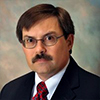
Ted Schorn
Enkei America Inc., Columbus, IN
This session will describe the essential elements of a minimal control system for products and processes. The goals of such a system include: 1) Product conformity to customer requirements; 2) Sufficient documentation to satisfy customer audit and demonstrate system reliability; 3) Efficiency of operation through reduced poor quality costs. While quality system standards such as ISO 9001 provide an excellent foundation of requirements, many smaller foundries may not need to be certified to this standard. This session will identify the necessary components of quality assurance without assuming the full scope of ISO 9001.

Tom Slavin
Cardno Chemrisk, Chicago, IL
Making “safety first” more than a hollow slogan requires rethinking how safety fits into your business. This session will explore why safety is too important for your business to leave to OSHA or to safety professionals. It will outline steps to turn safety into a powerful business strategy.

Brent Charlton
Metal Technologies Inc., Auburn, IN
Will cover the most frequently cited standards and compliance strategies for each.

Joey Leonard
HS Group HR Inc., Green Bay, WI
How to change view of foundries in younger generations.

Marshall Miller
Tesserract 4D, Rock Spring, GA
Every business has challenges in maintaining or gaining business. This presentation covers the importance of selecting the right sales force, process support technology whether it exists internally or externally, acquiring skilled workers and thinking out of the box as some successful shops have done.
The wrong sales force can lead a business down the wrong path trying to produce castings that don’t fit. Support technology, whether it is internally or externally acquired, can lead a shop down the path of gaining business of an ever-shrinking pie from dead competitors and hinder more desirable business acquisition. And, a company without sufficiently effective talent acquisition and retention can have all the greatest whiz-bang tools and methods. But without people to do the work, the customer needs for delivery cannot be met.
Finally, all of the points mentioned should be examined with an eye of addressing them from a different perspective. After all, one might not be attending this presentation were there not issues in one or more of the areas mentioned!
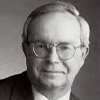
Jim Folk
The Folk Group, Bangor, PA
Succession Planning for Small and Midsize Foundries presents methods to help ensure a smooth leadership transition. The session considers the opportunities and risks in transferring management to family members, employees or others.
• Not considered often
• Different strategies for buying someone out
Moderator - Tom Dore
American Foundry Society Inc., Schaumburg, IL
• Biggest business issues?
• Biggest Technical issue?
o Lessons Learned
Blake Miehe
American Pattern, Cedar Falls, IA
• How to handle insurance on them?
• Tooling sharing between foundries
• Manage tooling (systems)

Patrick McCrevan
B&L Information Systems, Bridgman, MI
ERP systems can support a company’s work in many ways. Since ERP systems integrate all parts of a company seamlessly, better control is possible. ERP helps to minimize redundant data, control data produced by different departments, and reduce errors in data entry. The interconnectivity among all the modules of ERP systems increases the company's efficiency by reducing redundant data entry. ERP systems enable users to access timely information and accurate reports at any time. We hope to explain why it is a good idea for SMBs in the foundry industry.

Emily Shedlarski
Simpson Technologies Corp., Aurora, IL
Learn the basics of controlling green sand in the common, American foundry. A focus on the fundamentals, maintenance, process control, and practical economic solutions.
• Worker Education
o Overview of AFS e-Learning
o AFS Institute
o Upcoming Technical Conferences, Workshops & Webinars
• Overview of AFS Services/Corporate Member Benefits
o Affinity Programs

Michael Lewis, Sr.
Energy Solutions, APPI, Salisburg, MD
Our Holistic approach to Energy Management Solutions will be presented by Michael Lewis, Senior Client Advisor of APPI Energy. Michael will give a 45-minute presentation starting with an understanding of energy markets and current trends in energy. This leads into a brief dialogue about energy consumption in relation to billing, how demand charges and capacity tags contribute to cost overruns in electricity. Application of technologies and Energy Conservation Measures help to mitigate these charges and the changing landscape where time-of-use charges will elevate the impact of demand charges. Mitigation in the form of Energy Metering/Monitoring Equipment, LEDs, and Renewable Energy Technologies will slow, reduce, and eliminate energy costs, especially when available incentives are identified and utilized. The cheapest kwh is the one that is never consumed; utilities realize it is more cost-effective for them to subsidize energy efficiency upgrades than it is to build new power plants. Last, a brief discussion around Green Energy Products. With the supply chain push for Green Energy and Sustainability, there are options for foundries to purchase green energy credits where investing in green energy technologies, on-site cogeneration technologies are not possible. Securing favorable electricity and natural gas supply contracts to minimize budgetary risk, while also exploring the costs of green energy credits is a smart way for foundries to gain additional knowledge around the energy market of today and tomorrow.

Melissa Glossup
Safety Biometrics LLC, Tampa, FL
Identifying dangerous levels of heat in the workplace is difficult because each person can react differently to temperature levels. Traditional measurements such as thermometer reading and heat indexes do not account for these individual differences. State-of-the-art, wearable, biometric devices are available that can measure the individual worker’s reaction to heat and allow employers to respond before serious symptoms arise. Knowing when and where an employee is at risk, or requires immediate help can to dramatically reduce the severity of heat related injuries. Melissa Glossup will discuss the future of wearable technology and the financial incentives of integrating Biometrics into Foundries of all sizes.
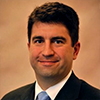
David Resser
Cooper Legal Group, LLC, Avon, OH
Many businesses incur costs and the inconvenience of requiring valued team members to dedicate time to resolve legal issues that arise from time to time. Foundries are no different, and often times these monetary costs and shifting of resources directly affects the bottom-line profitability of the foundry. Of course, many legal issues cannot be predicted, however, the severity of many legal issues can be limited through effective planning and sound strategy.
This presentation is intended to provide metal casters with an overview of some current legal issues involving the foundry industry. As many foundries strive to provide timely casting delivery while adhering to unwavering quality standards regimen, what does that mean for long-term storage and ownership of customers’ patterns and molds? Learn about this and other foundry-related legal issues.

Ryan Showalter
Fresno Valves, Selma, CA
Remote monitoring and logging can be extremely useful for measuring production efficiency and maintaining regulatory compliance. Foundries built in the modern era are designed from the ground up to have all equipment monitored remotely. For foundries that were built before remote monitoring existed, retrofitting equipment for remote monitoring and logging can be a challenging task. This presentation explores remote monitoring hardware and software solutions that can be used to monitor, record, and display equipment metrics with the goal of automating record keeping and gaining insight into real-time production details.
Breakout Session


Ken Way
Miller and Company, Florence, KY
Frank Headington
Neenah Foundry, Neenah, WI
• Effect of Tramp Elements
• Chemistry and Alloying
• Non-standard consumables
Breakout Session
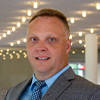
Brian Began
American Foundry Society, Schaumburg, IL
Casting alloys differ in their intrinsic requirements for melting and melt treatment. Molten aluminum alloys are notorious for having hydrogen go into solution at typical holding temperatures that come out during solidification potentially causing casting issues. Molten aluminum alloys are also notorious because oxygen more readily reacts with the surface of molten aluminum to form deleterious oxides, relative to most other casting alloys. In this interactive discussion, disciplines for oxide control and management will be reviewed. Moreover, strategies for controlling, measuring hydrogen gas and the related detriments and even benefits hydrogen can initiate will be discussed. Related molten bath treatments such as alloying, eutectic modification, and grain refinement will also be reviewed for their place in proper melt treatment while also reviewing new developments and techniques being adapted into the modern day aluminum foundry.

Brandon Lamoncha
Humtown Products, Columbiana, OH
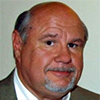

Pete Buczek & Chris Goetz
WGS Global Services, Flint, MI
The session will provide ways to use outside resources or shared services to meet the needs of the business with high quality and efficient services while reducing cost and investment. Examples and suggestions to look for low-cost solutions to allow companies to focus on their core business.